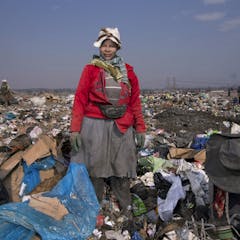
Articles on South African media
Displaying 1 - 20 of 21 articles

The study analyses the social media feeds of three science journalism websites: Bhekisisa, SciBraai and The Conversation Africa.

The South African print often uses language that portrays foreigners in a bad light, and dehumanises them.

The newspaper confounded critics with its contextually relevant and informative stories.

There’s a new wave of indigenous language podcasts that could attract big new audiences.

The news media provide a very particular case study of gender discrimination.

Study finds that the language used in news reports is often part of the problem, not the solution.

The study analysed the content of six news outlets from 1994 to 2014, looking at how core socio-economic issues were reported.

Using state resources to sue media for spreading fake news is not the answer, and sets a bad precedent.

Tighter controls are not the answer; the opportunity should be used to think differently about trust and journalism. It is critical to enable audiences to distinguish reliable, verified information.

To rebuild lost trust in the media will require more commitment and effort than just papering over ethical cracks.

From oil disasters in Mauritius to street artists in South Africa, the story of rubbish in the media helps shape popular culture and environmental change.

Revelations show that the State Security Agency did little to safeguard the country and much to protect Zuma’s political faction and to funnel public money into private ends.

For every office holder who may lose a seat because they are prosecuted, another job opens up.

The life and work of seminal South African writer, intellectual and politician Sol Plaatje seems more relevant than ever. We look into some of the latest scholarly inquiry.

Raymond Louw will be remembered as a man of unbending principle.

South Africa’s law that regulates the Interception of communications is being challenged on the basis it can be abused by rogue elements in intelligence.

Community radio stations have thrown themselves into the political discussion with gusto.

For democracy to work, the press has to be free.

To claim that protests are being organised suggests sinister motives. But all protest is organised. So are cake sales and shopping expeditions.

The lack of in-depth coverage of the southern African floods tell a grim picture of the state of South Africa’s newsrooms.
